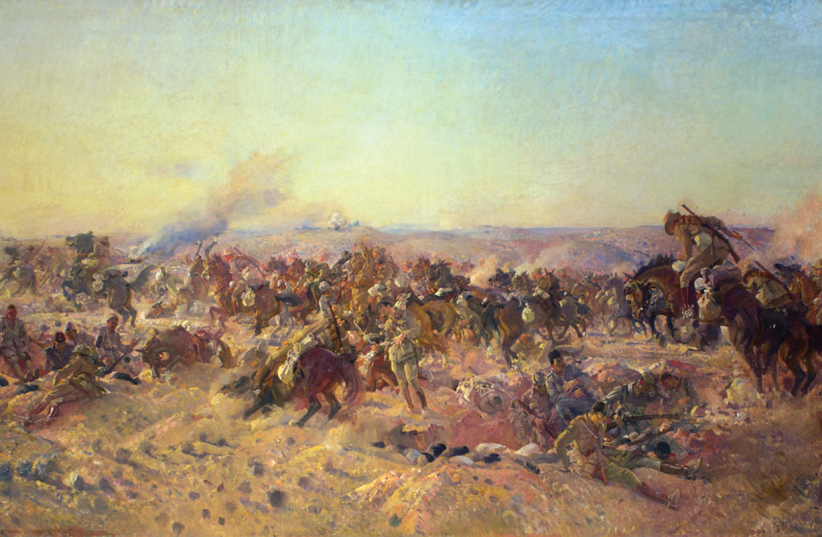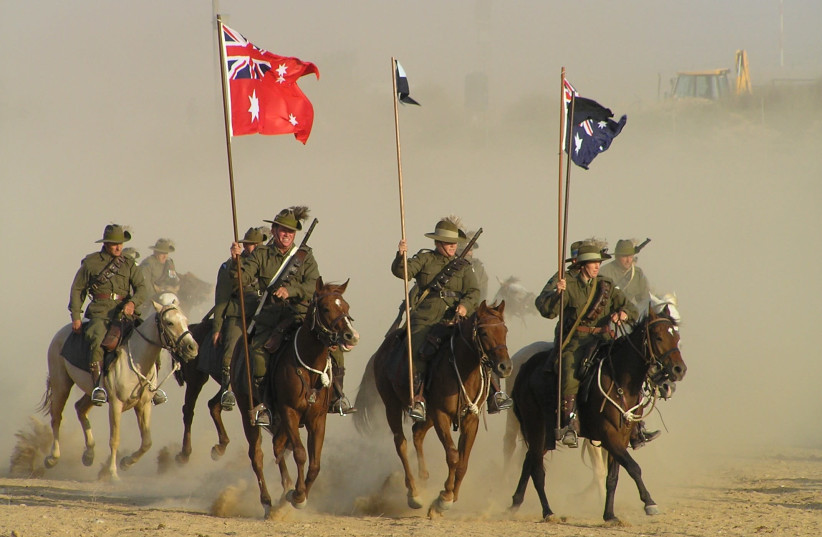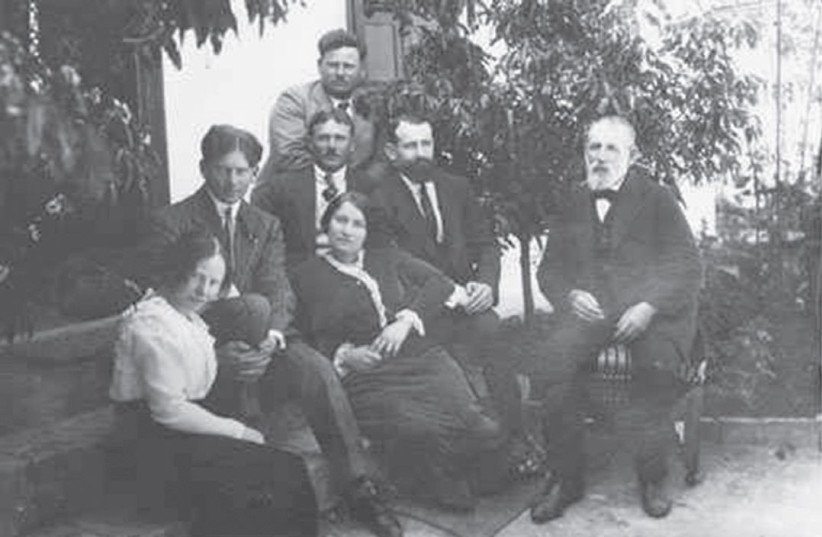October 31, 2021 marks 104 years since the Battle of Beersheba, a decisive victory in World War I for the British Army, consisting largely of Australian and New Zealand troops, marking an end to centuries of Ottoman rule in the country.
The battle saw the British forces coming off of multiple defeats against the Ottomans, specifically the disastrous Gallipoli campaign, a humiliating loss in the Battle of Kut in modern-day Iraq and then two losses in Gaza.
The commanding general of what had been dubbed the "Egyptian Expeditionary Force," Gen. Sir Archibald Murray, was replaced with Gen. Edmund Allenby, who had been given instructions to recapture Jerusalem by Christmas.
Rather than launch another attack against Gaza, Allenby decided to attack Beersheba.
The attack certainly had risks. The town was heavily fortified, though not as strongly defended as Gaza. It did, however, sit near the highly fortified Ottoman front line, dominating the South with trenches, redoubts and strong fortifications.
Beersheba itself had natural geography on its side as well, with a harsh lack of trees and water coupled with hills and tells further enhanced by Ottoman fortifications.
But despite an apparent lack of water, Allenby was convinced otherwise. This was done with the help of Aaron Aaronsohn, an agronomist from Zichron Ya'akov and a member of the spy ring Nili, who had found out that there were large reserves of water hidden in the area.
This was essential for Allenby, as water would be needed for the men, horses, camels and vehicles to win the campaign.
Using espionage work, Allenby and a British Zionist intelligence officer Richard Meinertzhagen managed to figure out Turkish lines and strategy, and duped them into thinking another attack on Gaza was imminent. The Ottomans began to shore up their defenses near Gaza.
On October 31, at 5:55 a.m., the Egyptian Expeditionary Force launched their attack, launching a bombardment on fortifications and other targets for several hours and slowly advancing forward, capturing territory as they pushed ahead into the trenches and other Ottoman positions. However, it was slow progress, and the British forces were still looking at a potential defeat by mid-afternoon.
But the most famous part of the battle is the cavalry.
The Anzac and Australian Mounted Divisions had been given important jobs for the battle, such as cutting the roads from the city towards Jerusalem and Hebron. They had also been told to act as screens and stop reinforcements and saw fighting in other areas, such as Tel el Saba, a highly fortified defensive position that would have destroyed any attempted mounted charge against Beersheba.
Tel el Saba in particular was a major offensive effort, seeing multiple regiments charging into the area against heavy Ottoman fire, artillery and even aircraft. But the objective was captured, and, unknown to the attackers, the Ottoman forces had actually planned on withdrawing as they could not maintain Beersheba.
Soon, it was time to launch an attack on Beersheba itself. Australian and New Zealand cavalry kept charging towards the city, and soon began blocking exits from the city.
The Australian 4th and 12th Light Horse Brigades had been given the order to make a frontal charge against the trenches. And they did exactly that, several hundred soldiers with bayonets charging over several kilometers of open ground, riding through artillery and gunfire.
Ultimately, this charge was successful, with some soldiers dismounting into the trenches to fight the Turks in close combat and with the others charging into Beersheba and taking the city.
"This was the last great cavalry charge in military history," said writer Barry Shaw in a 2017 op-ed in The Jerusalem Post. "The enormous courage of the ANZAC soldiers won the day, Beersheba was taken, and this battle opened the way for the liberation of Palestine and the fall of the Ottoman Empire."
The British victory in this battle had enormous ramifications. In the short run, the battle was important for the overall campaign, pushing the Turks back and allowing the Egyptian Expeditionary Force to advance. Gaza was taken a week later, and Jerusalem was successfully captured in six weeks' time.
But in the long run, the battle had two other major impacts.
The first was on the future of the region itself. Just days later, on November 2, then-British foreign secretary Arthur Balfour had reached out to Baron Rothschild and sent out the Balfour Declaration, noting that the British government viewed "with favor the establishment in Palestine of a national home for the Jewish people."
It was no coincidence that this followed the victory at the Battle of Beersheba, as it had effectively broken the stalemate in the region. This declaration was pivotal in the advancement of the eventual establishment of the State of Israel.
The second was on the fostering of Australian and New Zealander identity.
The battle was heralded as a major event in Australian history and has been dubbed by Australian historian Jonathan King as "Australia's first big achievement on the world stage."
The battle was commemorated in the city in 2017, with Australian and New Zealand officials coming and marking the occasion with a solidarity ceremony, a dedication of an army memorial museum, and a cavalry parade.
Around 100 Australian horsemen also held a small-scale reenactment of the famous cavalry charge, the BBC reported at the time.
In 2019, former Australian prime minister John Howard honored soldiers who fought in that battle.
The battle remains important to Australia to this day.
"The battle has become part of our history, part of our psyche," then Australian prime minister Malcolm Turnbull said in 2017, according to the BBC. "They spurred their horses through that fire, those mad Australians, through that fire, and took the town of Beersheba, secured the victory that did not create the State of Israel but enabled its creation.
"Had the Ottoman rule in Palestine and Syria not been overthrown by the Australians and the New Zealanders, the Balfour Declaration would have been empty words," he added. "But this was a step for the creation of Israel."
Barry Shaw contributed to this report.


